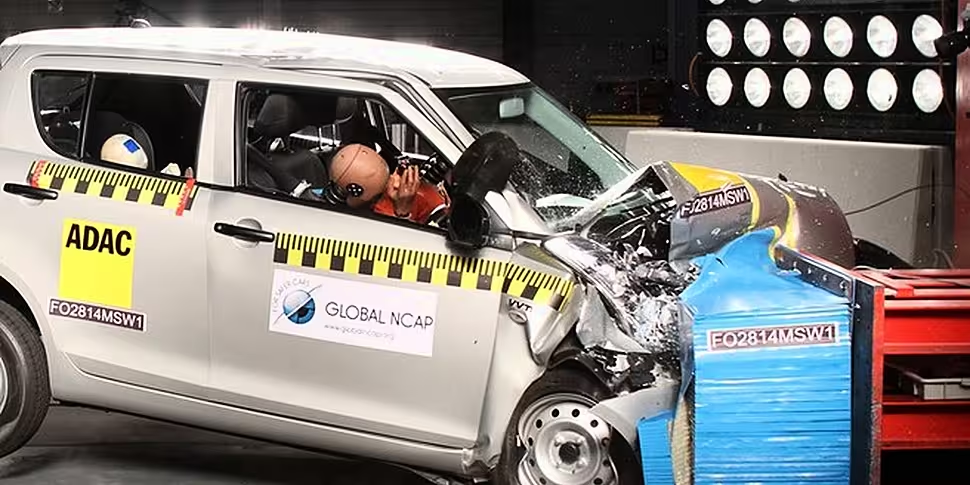So who’s the blame for those exorbitant motor insurance premiums that only ever seem to be accelerating in one direction and are crippling Irish drivers as it is?
After a summer of discontent and confusion from industry bodies, political heads and those behind the wheel – a season in which the only word Transport Minister Shane Ross had for the rise was “inexplicable" – the official spotlight is now, finally, on the industry.
More specifically, the Competition and Consumer Protection Commission (CCPC) has launched an investigation into the sector's pricing and whether there have been “breaches of competition law” in the market.
With the CCPC’s chairperson Isolde Goggin saying that “statements by senior industry players have raised serious suspicion”, the insurance companies have denied they have case to answer and ramped up the blame game play.
Increasing volumes of claims, higher awards, fraud and legal costs have all been cited as contributing to the more than 38% hike in premiums in the past year alone...
Are more and more people seeking compensation?
While the industry has argued this is the case, Central Bank figures suggest otherwise.
Fianna Fáil finance spokesman Michael McGrath requested and secured this information over the summer, revealing at a Dáil session in June that the amount paid out in claims for 2014 was actually 36% less than the 2011 number.
Although 2015 figures are still being compiled, insurance companies parted with €1.01 billion in 2014. And while just over €987 million was paid out in 2013, €1.5bn was won in 2011 and €1.06bn in 2012.
McGrath said at the time:
“The data to the end of 2014 does not substantiate the assertion by the industry that motor insurance claims are the main reason behind rocketing premiums.”
Can we blame it on the legal profession?
While it would stand to reason that it could be in a solicitor’s financial interests to make a car insurance case last as long as possible, bringing it beyond the Injuries Board and on to court so they can rack up more hours, the Council of the Bar of Ireland told an Oireachtas committee yesterday that legal costs play a “very small role” in insurance costs.
Appearing on Newstalk Breakfast this morning, the Law Society’s Senior Vice President Stuart Gilhooly echoed that defence of his profession.
He argued that it “doesn’t really matter” at what stage a client takes the “right offer” and said:
“We’d be very foolish and we wouldn’t be in business for very long if we told our clients to [turn down] an offer which they subsequently get less for.
“I often tell my clients to accept Injuries Board awards; I often tell them not to.”
Gilhooly denied there were percentage charges involved and claimed that no extra charges were put on insurance companies – instead, it was an “individual contract between the solicitor and the client” based on the amount of work done.
He also disputed claims that foreign gangs are coming to Ireland with the express purpose of staging crashes to make a quick buck.
“Where are the prosecutions?” he queried. “If there is so much fraud, why are there no prosecutions?”
He had an answer, too, when Colette Fitzpatrick put it to him that the Courts Annual Service Report for 2015 showed a 7% increase in payouts and that awards were actually up 21.2%, putting that down to the large increase in medical negligence claims, many of which exceed €5m.
Gilhooly said that you’d find the figure has actually decreased “if you take any cases worth over five million out of that.”
Instead, he volleyed the ball back into the insurance companies’ court:
“What we have seen up to about the end of 2013, is very low or much lower insurance premiums. And then for some reason which was unclear to anybody really – and certainly unclear to us – the last two years have seen monumental increases to a level which really no one can explain.
“The data confirms this. There has been no increase in claims costs over the course of those two year and indeed not for many years.”
Insurers feel “the heat”
A case of naked profiteering and cartel-like operations on the industry’s part, then?
Charlie Weston, personal finance editor of the Irish Independent believes so.
“What happens is these companies report their profits for last year – or more often than not their losses – and in the midst of that they're asked usually asked or else volunteer information about where premiums are going to go next year,” he said.
“So they're signalling to each other to keep pushing up prices. That's seen as an unspoken coordination of price rising.”
Weston considers it strange that we’re seeing “across-the-board increases”, with no company “stepping out from the pack” to offer more competitive prices.
Rather than blaming the legal profession, Weston feels it is time for insurers to admit that they messed up, and that poor management and the fact they’re not making returns on their investments account for the hikes.
He continued:
“They were competing with each other at a level where they couldn't make money, the rules changed... New solvency rules came in, affecting their reserves. They got caught on that one.
“Investments are on the floor – they don't make any money out of investments – and they were underpricing and under reserving.
“So they've been caught now. This at least puts the heat on them. It'll be difficult for them now to put through massive increases next year when they're being investigated by the competition authority.”
It’s not all clear cut, however, with Weston himself admitting that it’s “very difficult to get to the truth of the matter” and expecting a protracted, messy probe.
In the meantime, which drivers will be suffering the most?
“Particularly elderly drivers and younger drivers. But basically anybody.”
It will be a long road for many. The saga continues.









